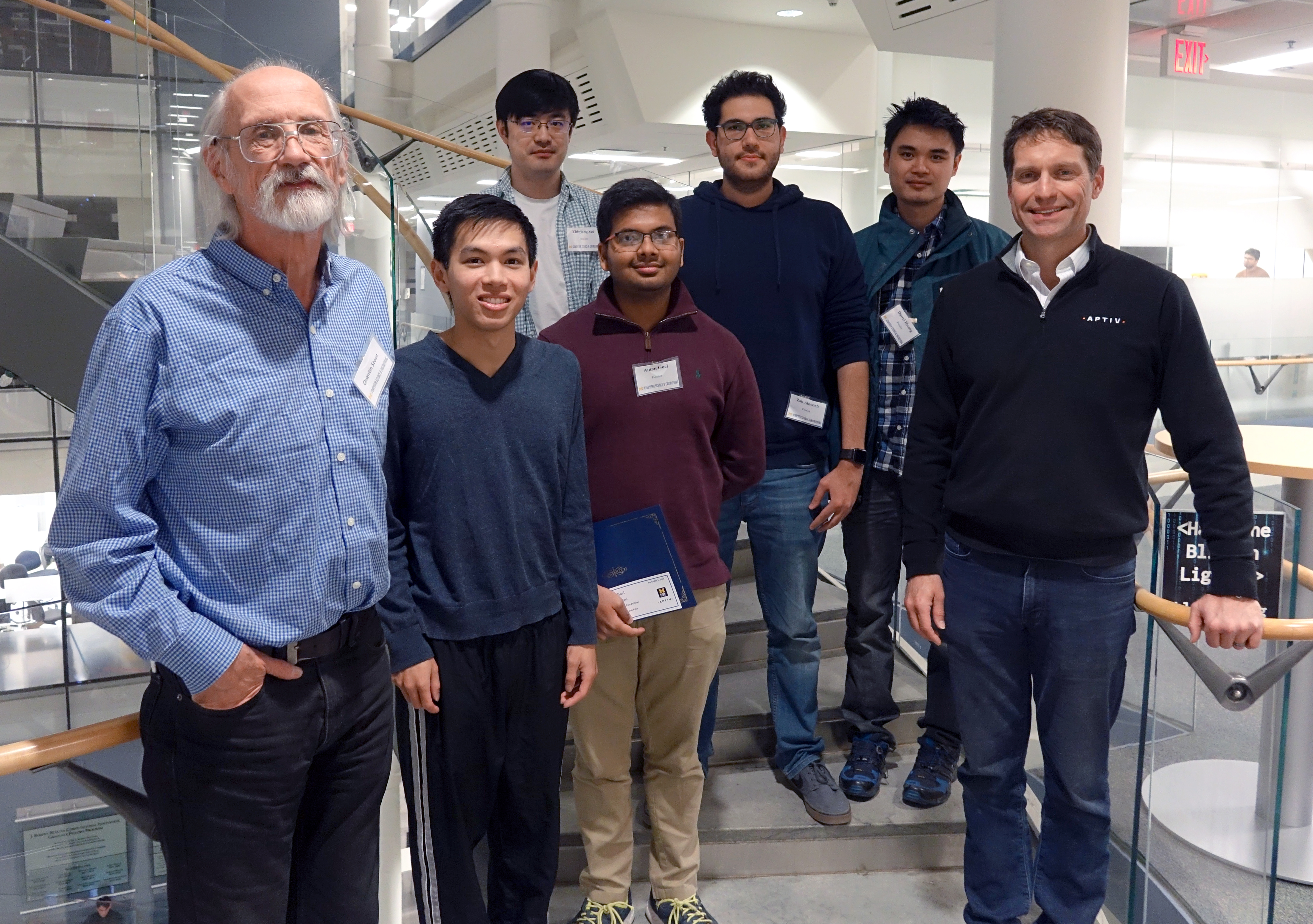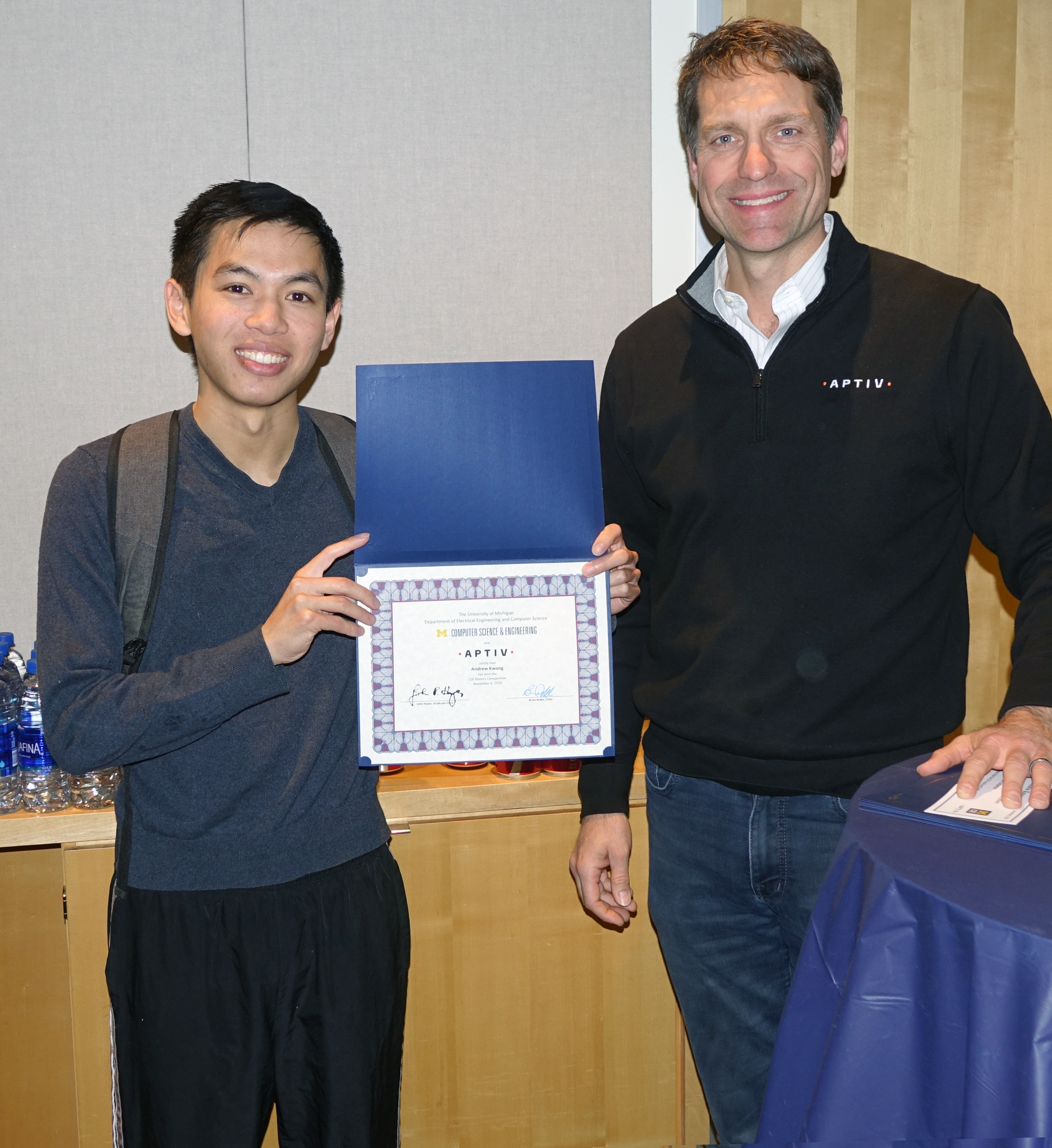2019 CSE Graduate Student Honors Competition highlights outstanding research

 Enlarge
Enlarge
CSE held its sixteenth annual CSE Graduate Student Honors Competition on November 6, 2019. The competition recognizes the research done by PhD students at CSE and the final competition is the culmination of a process that narrows a field of entrants to a handful of finalists, each of whom gives a summary presentation on an area of their research.
The 2019 Honors Competition was sponsored by industry partner Aptiv, a global technology company that develops safer, greener and more connected solutions, which enables the future of mobility.
CSE faculty and representatives from Aptiv ranked the finalists’ presentations.
Top Presentation Chosen
The top presentation in the 2019 competition was “RAMBleed: Reading Bits in Memory Without Accessing them,” given by Andrew Kwong, who represented CSE’s Systems research area. His presentation summarized findings from the paper he coauthored and which will be presented at the 41st Annual IEEE Symposium on Security & Privacy in May 2020.

 Enlarge
Enlarge
About the Research
Led by CSE PhD student Andrew Kwong, researchers uncovered this new data-pilfering side-channel attack that exploits the ever-shrinking dimensions of DRAM chips that store data a computer needs to carry out various tasks. The attack lets unprivileged attackers corrupt or change data stored in vulnerable memory chips and can be used to extract cryptographic keys or other secrets. RAMBleed is similar to previously reported Rowhammer attacks, which work by rapidly accessing—or hammering—physical rows inside vulnerable chips in ways that cause bits in neighboring rows to flip, meaning 1s turn to 0s and vice versa. RAMBleed takes Rowhammer in a new direction. Rather than using bit flips to alter sensitive data, the new technique exploits the hardware bug to extract sensitive data stored in memory regions that are off-limits to attackers.
Runners Up in 2019
Runners up in this year’s competition were:
Zak Aldeneh
Interactive Systems
“Identifying Mood Episodes Using Dialogue Features from Clinical Interviews”
Aman Goel
Hardware
“Push-button Verification using Abstraction and Induction”
Dawei Huang
Theory
“Sharp Bounds in Communication Complexity”
Zhiqiang Sui
Artificial Intelligence
“GeoFusion: Geometric Consistency Informed Scene Estimation in Dense Clutter”
 MENU
MENU 
